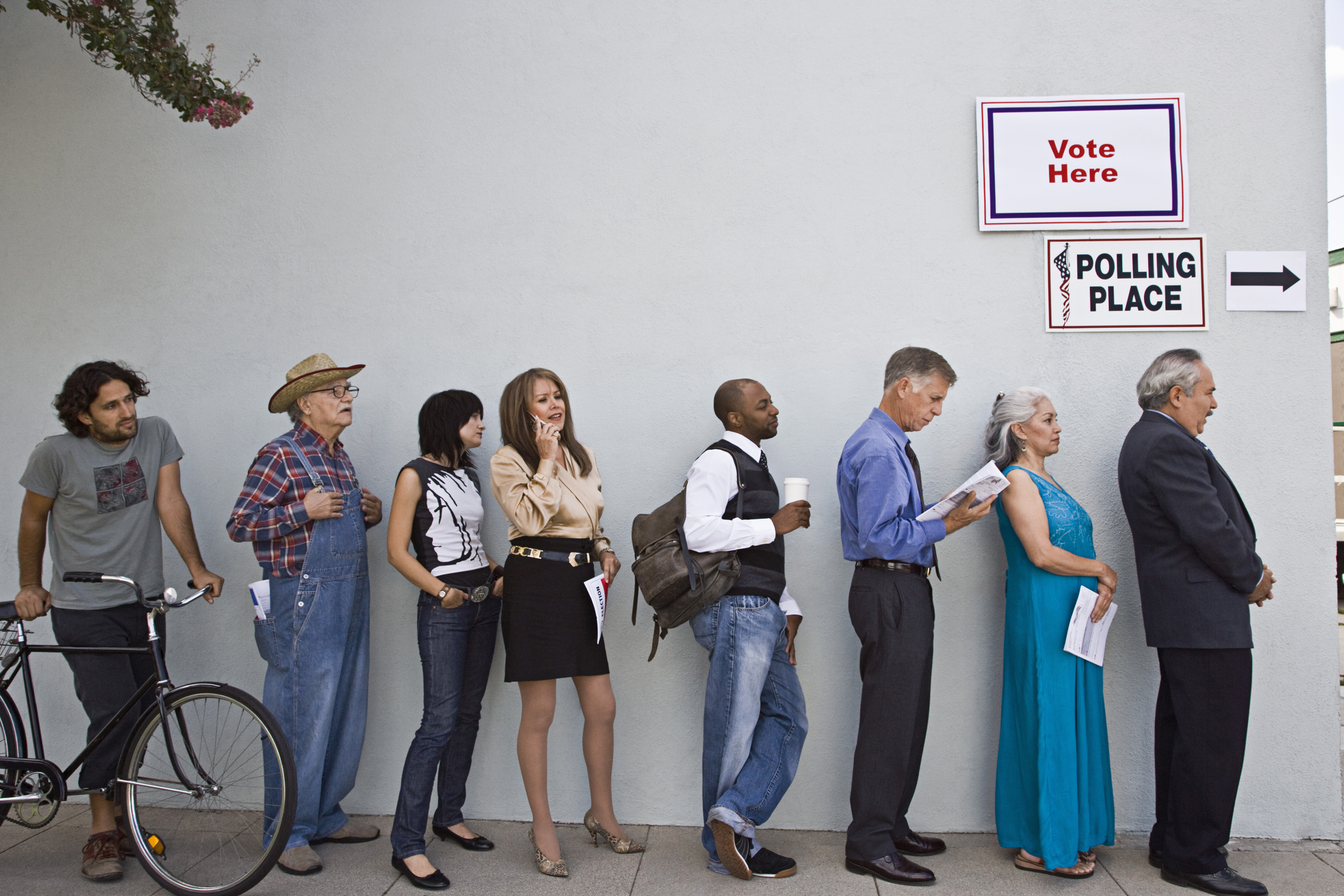What Voting Restrictions Are in Place for the Midterm Elections?
As the midterm elections near, voters in many states are facing a wide range of new requirements — and restrictions — as they prepare to cast their ballots.
State legislatures broke records in 2021 and 2022 for enacting measures around voting rights. Most of this activity made it tougher for people to vote.
Since the beginning of 2021, lawmakers passed at least 42 restrictive voting laws in 21 states. At least 33 of those laws contain provisions that are in effect for the midterm elections.
Historical Perspective
Restrictive voting laws, of course, are nothing new. Black men couldn’t vote until 1870, and it wasn’t until 1920 that women could vote.
But those amendments have not stopped states from passing laws making it difficult for some Americans — especially Black Americans — to vote. The most notorious of these measures are the Jim Crow Laws that were common in the South and elsewhere over more than 100 years, from the emancipation of slaves in 1865 until at least the 1960s.
The Jim Crow Laws directed at voting took several forms: literacy tests, poll taxes, and grandfather clauses. Congress finally passed a law prohibiting these restrictions with the Voting Rights Act of 1965.
Although that law ended the most egregious of the restrictions, some states found ways to implement new ones. One of the most common is voter identification laws. Before 2008, no state required voters to provide identification at the polls, but today 35 do. Proponents contend that these laws prevent voter fraud, but critics argue that they suppress voting by people on the lower end of the economic scale who may lack proper identification documents.
What Has Changed?
The big increase in restrictive voting laws since the beginning of 2021 is taking new forms. Although evidence of voter fraud in the 2020 general election is scant, one reason so many restrictive new laws have been passed is because lawmakers are arguing that our elections need to be more secure.
Here are some of the changes going into effect:
- Voter ID laws in some states are now much tougher. Eight states now require voters to provide photo IDs at the polls, more than double the number in 2000.
- Arizona and Mississippi now have laws requiring voters to prove citizenship when registering.
- In many states, it is now harder to vote by mail. Some states now require identification numbers when an individual applies for an absentee ballot, and some states now ban the use of ballot drop boxes.
- A new law in Oklahoma requires newly registered voters to complete an address certification form. Critics say this will diminish voting by people living on tribal land where some don’t have traditional addresses.
- While it won’t affect voting for the midterm elections, a ballot question in Arizona seeks voter approval for more restrictive voter ID requirements in the future. If it passes, all voters in Arizona will have to provide a photo, and mail voters will also have to provide an ID number from a driver’s license or the last four digits of their Social Security number on the ballot return envelope.
Meanwhile, some states are taking the opposite tack and expanding voter access.
According to the Brennan Center for Justice, at least 12 states this year enacted 19 laws that make it easier for residents to vote. Nine laws in six states make mail voting easier, eight laws in six states make voting easier for people with disabilities, six laws in six states make it easier to register to vote, and three laws in three states create or expand early in-person voting.
As you prepare to vote, it’s a good idea to review the election laws in your state. It may be more difficult for you to vote this year, depending on where you live, so it’s best to educate yourself on rules that may be new. It might be more difficult to vote, but it is still your constitutional right.
Related Resources:
You Don’t Have To Solve This on Your Own – Get a Lawyer’s Help
Meeting with a lawyer can help you understand your options and how to best protect your rights. Visit our attorney directory to find a lawyer near you who can help.






